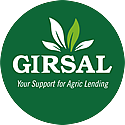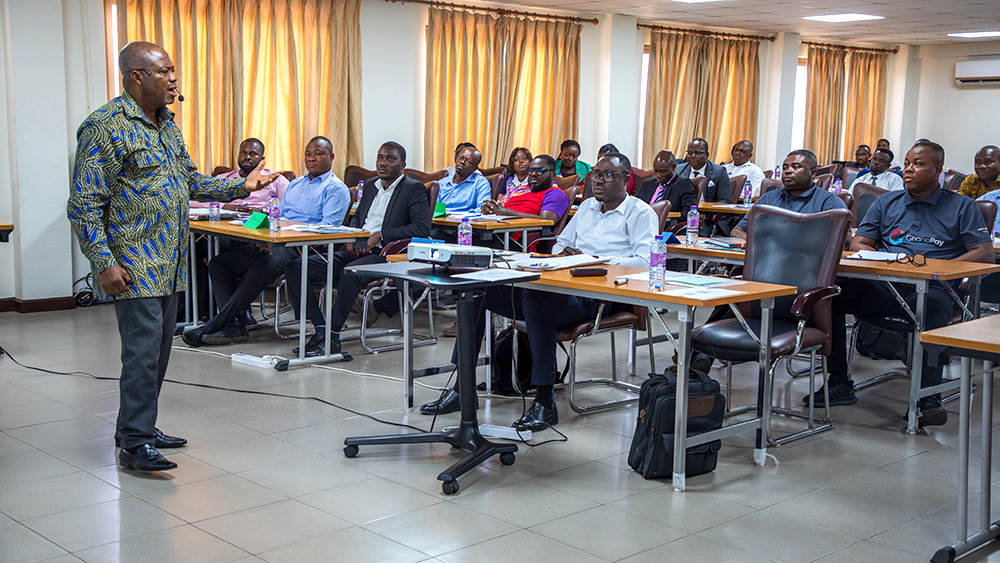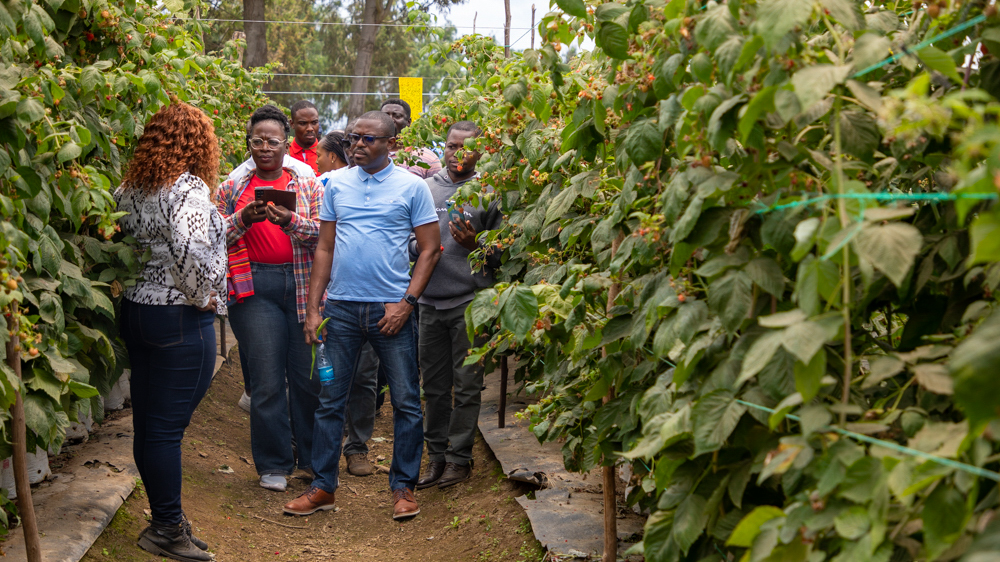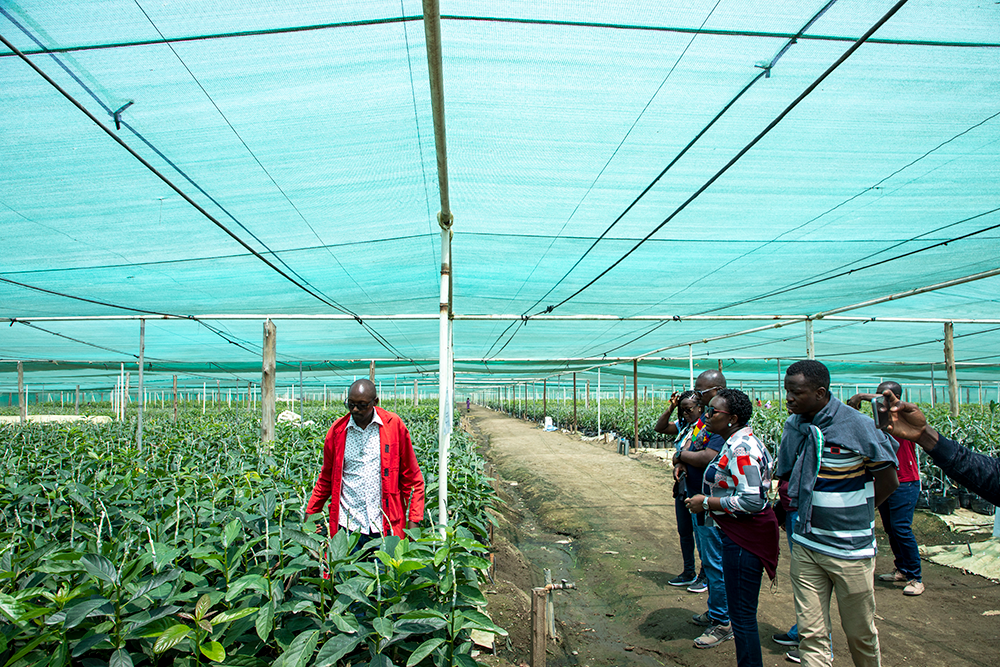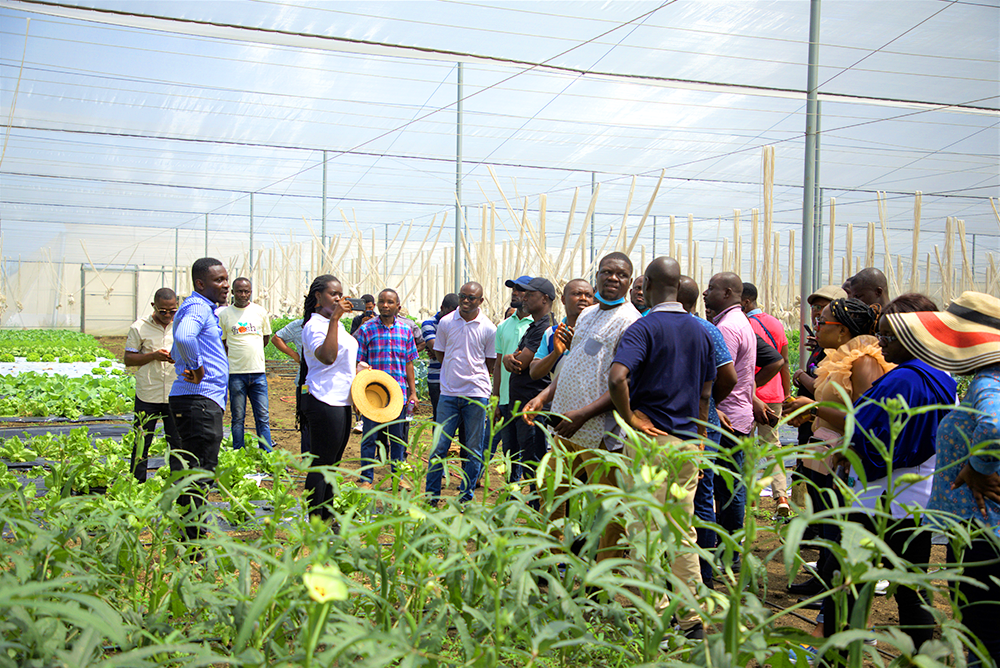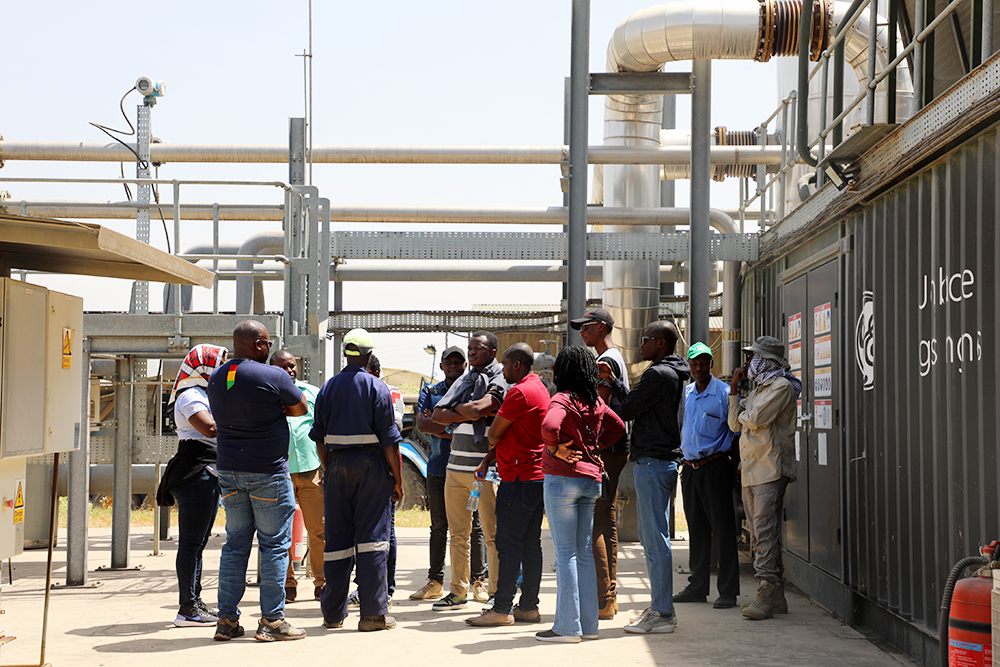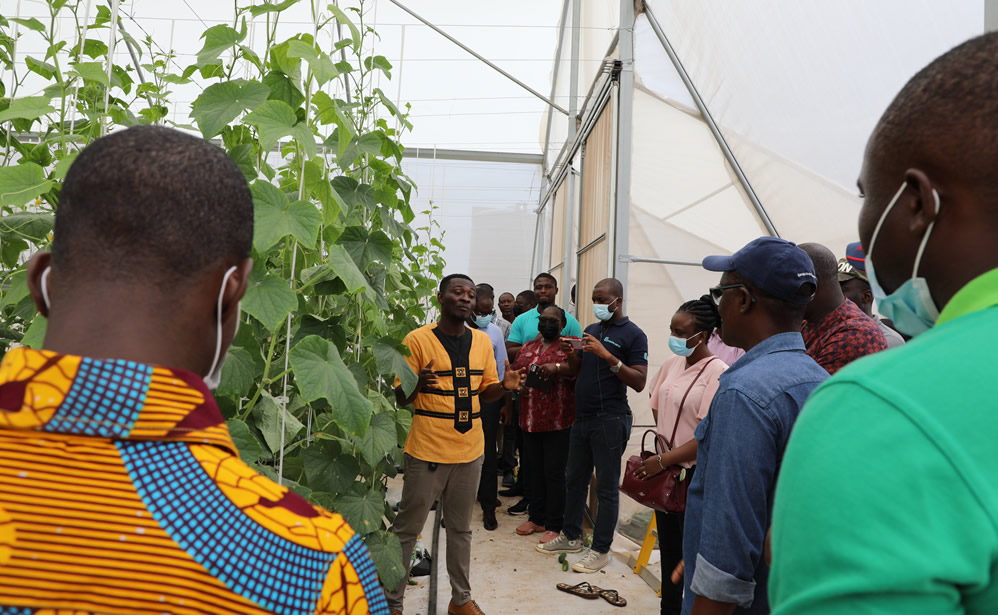Financial institutions in Ghana have historically shown a relatively lower appetite for agricultural financing compared to other sectors, a phenomenon often attributed to a combination of factors. Among these factors is the limited expertise and familiarity that financial institutions have with the intricacies of the agriculture sector, which has contributed to the perception that the entire agricultural sector is inherently risky for lending.
In response to these challenges and as part of a broader effort to mitigate risks within the agricultural sector, GIRSAL’s Technical & Advisory Services (TAS) program assumes a pivotal role in addressing the sector’s distinctive requirements.
Through tailored training, access to vital information resources, expert assessment of agricultural loan applications, diligent monitoring, and portfolio management support, GIRSAL’s TAS empowers financial institutions to make well-informed lending decisions within the agricultural sector. It also facilitates increased and sustainable lending to agribusinesses by supporting financial institutions to establish or strengthen specialized agricultural lending systems and related corporate policies. Additionally, this initiative seeks to enhance the ability and capacity of agribusinesses to access funding from these financial institutions.
Empowering Financial Institutions through Training and Industry Information
One of the cornerstones of TAS is the implementation of structured training programs. For the middle-level staff of financial institutions, GIRSAL’s Agriculture and Agribusiness Lending Training program is tailored to equip them with the knowledge needed for originating, appraising, and managing agricultural credit. Additionally, a specialized program titled ‘Making a Business Case for Agribusiness Lending’ is designed to inform and educate Board Members and Senior Management of financial institutions about the opportunities and challenges, within the agricultural sector, as well as available risk mitigation tools and support services. These programs have been meticulously designed to bridge the knowledge gap within financial institutions regarding agriculture and agribusiness financing.
Since 2020, through our collaboration with the National Banking College, with funding support from AGRA and Development Bank Ghana (DBG), these programs have proficiently trained over 530 mid-level staff and 46 executives and board members from a total of 39 commercial banks, rural and community banks, and non-banking financial institutions in Ghana.
To further augment the expertise of bank staff, who are primarily responsible for assessing agribusiness credit requests, GIRSAL has developed an agricultural knowledge portal, with funding support from AGRA This portal offers essential information on 33 agriculture value chains, empowering financial institutions to make informed credit decisions.
Immersive Agribusiness Study Tours
GIRSAL offers immersive agribusiness study tours to financial institution staff, encompassing executives, mid-level employees, and other value chain operators. These tours present a unique opportunity to witness at firsthand the inner workings of successful agribusiness operations and interact directly with their management teams. They also provide valuable insights into financing strategies, business models, risk management, and innovative technologies employed by these enterprises.
For instance, in August 2023, prominent figures from the Ghanaian banking sector embarked on a transformative study tour to explore VegPro Group, a well-established Kenyan agribusiness with over three decades of experience in food crop and flower production, processing, and global export. This delegation comprised top executives from nine financial institutions partnered with GIRSAL, alongside agribusiness representatives and government officials. Participants delved into VegPro’s diverse activities, including production, processing, and eco-friendly waste management, and gained firsthand insights into their agribusiness operations, risk assessment, and opportunities.
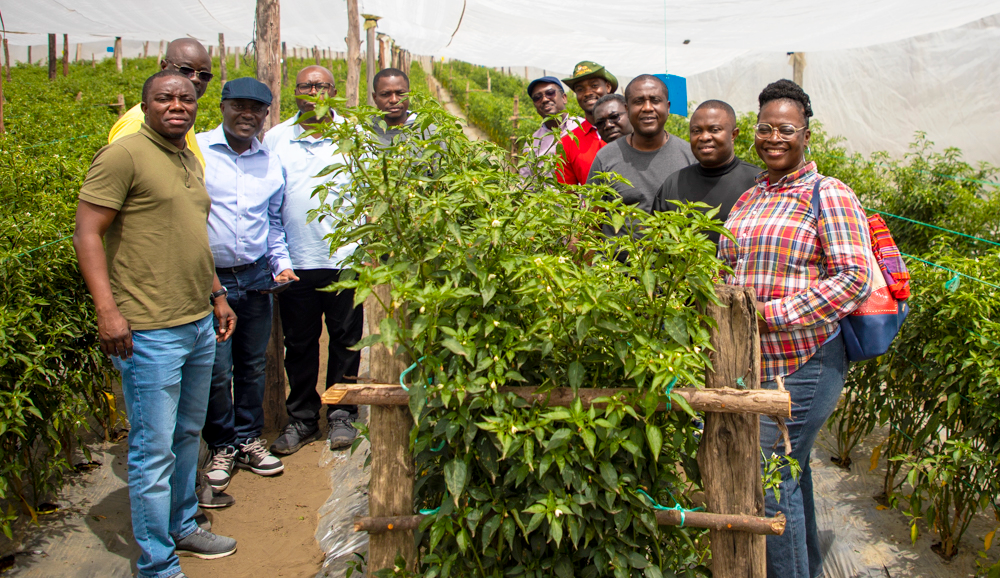 Top Executives of Financial Institutions on a Study Tour at VegPro Group, Kenya
Top Executives of Financial Institutions on a Study Tour at VegPro Group, Kenya
Feedback received from the tour highlighted its significant influence, as it reshaped participants’ perspectives on agricultural lending and inspired their commitment to support the sector. The trip also generated concrete action points, including the proposed establishment of an Agriculture and Agribusiness Chamber and an Agribusiness Funding Pool, all geared towards advancing Ghana’s agricultural sector.
Similarly, more than 400 mid-level staff from financial institutions have participated in learning visits to successful local agribusinesses, with some of them visiting VegPro. These experiences facilitate the exchange of knowledge and best practices, ultimately improving financial institutions’ expertise in supporting agribusinesses and sustainable lending practices.
Enhancing Appraisal Capabilities and Ensuring Project Success
GIRSAL offers expert technical support to financial institutions at the outset of their agricultural loan approval process. This involves evaluating the technical and financial feasibility of projects. Financial institutions utilize these insights during their initial assessments and approvals, which precede their formal credit guarantee applications to GIRSAL.
Additionally, GIRSAL employs a practical and collaborative approach to assess credit guarantee applications. We work closely with financial institution credit analysts and relationship managers to visit project sites, identify risks, plan mitigations, and structure loans. This approach offers financial institution staff hands-on experience in GIRSAL’s credit assessment techniques and allows them to tap into our expertise in specific value chains where they may lack knowledge and experience.
After securing funding and obtaining GIRSAL’s guarantee, the collaboration between GIRSAL and the funding financial institution continues with a focus on regular site visits and inspections. This joint effort ensures that project progress is continuously monitored, plans and timelines are adhered to, and potential challenges or risks are promptly identified. Through this cooperative approach, guaranteed agricultural projects maintain their course, significantly increasing their chances of success.
The impact of GIRSAL on enhancing the capacity of banks in agricultural lending is evident in the improved quality of credit guarantee applications submitted by its partner financial institutions. Notably, GIRSAL has so far supported 16 partner banks in evaluating loan applications leading to lending valued at over GHS 900 million for 113 agribusinesses, spanning various value chain activities across Ghana.
Sadiq Katali Alhassan, Senior Credit Analyst for Corporate Banking at Republic Bank PLC, praised GIRSAL’s support in analyzing their Agric-based financing requests. According to Sadiq, Before GIRSAL’s intervention, banks were hesitant to extend loans to the agricultural sector due to concerns about elevated risks. However, GIRSAL’s involvement has alleviated these concerns and encouraged banks to expand their agricultural loan portfolios and venture into agribusiness lending.
GIRSAL has also partnered with the Development Bank Ghana (DBG) to enhance agricultural financing. In this renewed partnership, DBG will utilize GIRSAL’s expertise to extend loans to the agricultural sectors, including initiatives like the Rice Impact Financing Initiative, aiming to invest over $100 million in the rice value chain. This investment will promote local production, yielding more than 1 million tons of quality milled rice in the coming years. DBG specializes in providing long-term and affordable funding to financial institutions for lending to agribusinesses and other sectors.
Strengthening Agricultural Finance Systems in FIs for Sustainable Growth
Recognizing the crucial role of specialized expertise and robust systems in agricultural finance, GIRSAL offers technical services to build or strengthen agricultural lending systems in partner financial institutions. This comprehensive support encompasses the development of food and agriculture lending policies, the establishment of requisite internal systems, training, and the provision of information resources.
For instance, GIRSAL is actively assisting CalBank in establishing a policy, and internal systems, intending to increase its agricultural portfolio to 15% of the bank’s total lending within two years. Additionally, GIRSAL is collaborating with DBG to facilitate the establishment of robust agricultural lending systems in two other banks.
Furthermore, back in 2021, GIRSAL partnered with Rabo Partnerships to enhance financial institutions’ expertise in agricultural financing. They conducted need assessments and provided support to improve loan appraisal processes and streamline credit applications.
Conclusion
GIRSAL’s Technical Assistance and Support (TAS) program has significantly expanded the agricultural portfolios of financial institutions, by mitigating risks, providing expert technical support, and encouraging new players in agribusiness lending. The program has contributed to substantial growth in the value of agricultural loans facilitated through GIRSAL’s intervention, increasing from GHS 122 million in 2020 to a current total of over GHS 900 million. This growth reflects the growing interest of financial institutions in supporting the agricultural sector.
Looking forward, GIRSAL is committed to implementing further innovative technical interventions to empower financial institutions, reduce risks, and facilitate financing across various agricultural value chains, particularly those related to import substitution and export potential.
